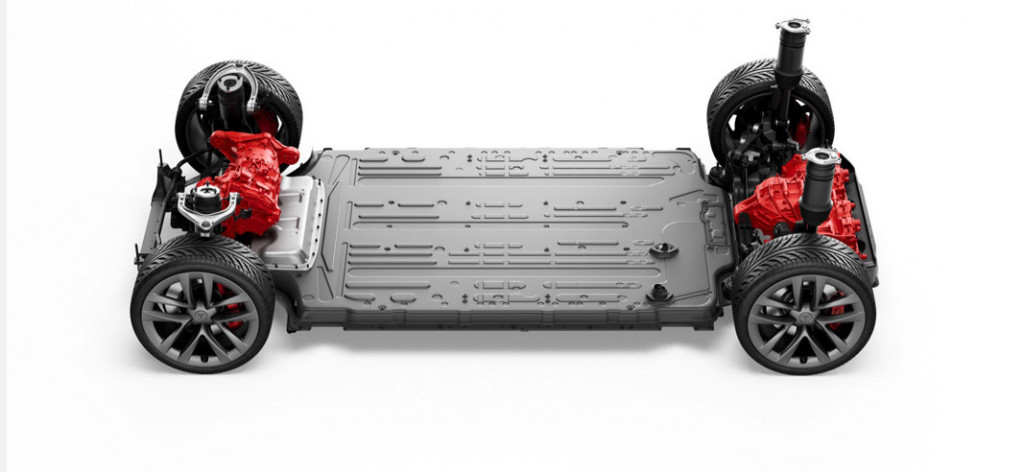LG Energy Solution, the battery division of LG Chem, plans to build battery cells for Tesla beginning in 2023, and is considering potential factory sites in the United States and Europe, Reuters reported Tuesday.
The South Korean company has made sample batches of the 4680 large-format cylindrical cells, but has not yet attempted to mass produce them, according to the report, which cited two anonymous sources familiar with the matter. Tesla also hasn't yet agreed to a battery-supply deal with LG, the report said.
Tesla announced plans to switch from its current 2170-format cells to the new 4680 format in September—only for some future vehicles. The switch is meant to reduce costs and improve battery performance. Tesla has also discussed developing future cells in-house, leading LG and current Tesla battery supplier Panasonic to begin experimenting with 4680-format cells in order to retain the automaker's business, Reuters noted.
A European LG factory would supply cells to Tesla's German Gigafactory, which is currently under construction, the report said. One of the sources said Spain was a possible location.

2021 Tesla Model S Plaid+
This follows reports that LG Chem was planning to produce "new form factor" cells. Previous reports also indicated the company was planning to expand its battery-manufacturing footprint in the U.S.
The Wall Street Journal reports that General Motors is in talks with LG Chem to build a second battery plant in Tennessee, that would supply the automaker, in addition to a plant in Ohio the two companies are already partnering on. It's not clear whether this would be the same plant, or a different one. If the two are approved it would boost LG Chem from two battery facilities to four in the U.S.
LG Chem had already homed in on Kentucky and Tennessee the last time it was looking for production locations, although that was before Tesla chose Texas as the location of its second U.S. assembly plant, which will build the Cybertruck and other vehicles.
An additional LG Chem facility may be necessary for the stability of the U.S. industry, after the challenge LG mounted might prevent rival SK Innovation from building cells later this decade for Ford, Volkswagen, and others.












